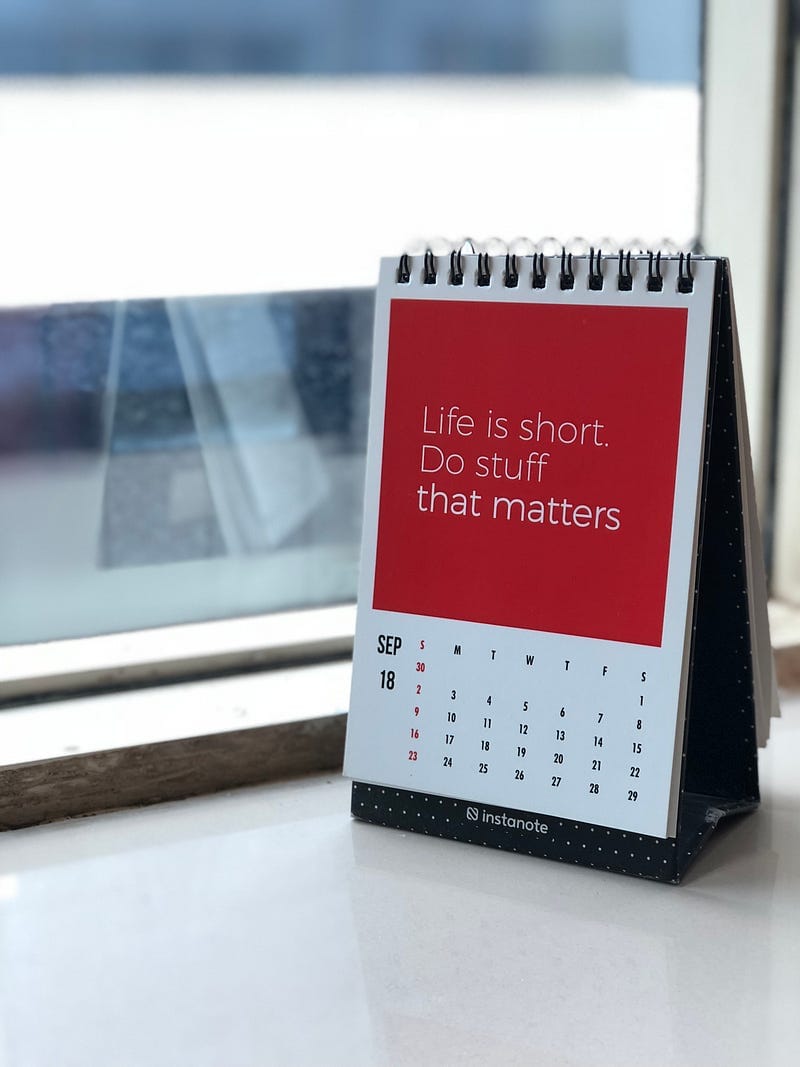If it isn’t scheduled, it won’t happen
I’ve had a pretty good run of writing something (internally, for Yelp) every week for a while now, averaging ~3 posts per month since…

I’ve had a pretty good run of writing something (internally, for Yelp) every week for a while now, averaging ~3 posts per month since August. These posts are usually focused on what I’ve been thinking about this past week, but I try to include a dedicated non-status-update section in each one. Writing these sections is the majority of my effort for each post and also the most common reason I fail to publish something — they’re hard!
When writing isn’t scheduled….
Lately I’ve noticed a bad pattern (including this last Friday) that goes something like this:
- My week is a little crazy and I feel behind
- I don’t write the weekly post until Friday
- Friday morning quickly fills up with all the other things I’m behind on
- The post either happens very late Friday, or I write it on the weekend, or it doesn’t happen at all that week
This isn’t occurring every week, but when I miss a post it’s nearly always due to this sequence of problems. I’ve given a talk at Pycon with a variety of ideas for not getting overloaded, and part of that strategy is to identify important work and prioritize it explicitly.
Parkinson’s Law and the value of explicitly blocked time
Parkinson’s Law says “work expands to fill the time available” and the only way I know to protect tasks against encroachment by other tasks is proactively setting aside of time.
I strongly encourage explicitly blocking time for the most important work you want to do, and scheduling it up front where you’re forced to work on it before anything else can claim your limited time. Leo Babauta advocates for thinking regularly on your most important tasks (MIT) and attacking it immediately and directly — another way to avoid unintentionally prioritizing the tiny “junk food” tasks that are easy to crank out but relatively unimportant.
For my writing, this means no “squeezing writing in after work” or “when I have free time on a Saturday”, but blocking dedicated time (1 hour a week for now, Thursday mornings) in my calendar. Inevitably I’m tired on a weeknight or I have competing life plans on a weekend (like spending quality dog park time with a certain puppy).
Applying it in practice
So I’m going to try setting aside time for writing less informally and more explicitly. Major changes:
- Set aside 1 hour Thursday mornings
- Check in another couple weeks and see if this is enough time or I need to adjust the duration. Maybe try one longer block and more, shorter blocks to see which works best.
- Build a feedback loop of making sure every month or so that whatever setup I have is working (am I actually writing and publishing regularly?)
The goal is to also make a point of more regularly writing here in a public and visible way. I’ve often felt frustrated at the lack of technical leadership writing on the web — time to make sure mine is generally available at least.
Originally published at www.locallyoptimal.com on March 26, 2019.